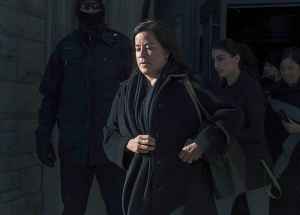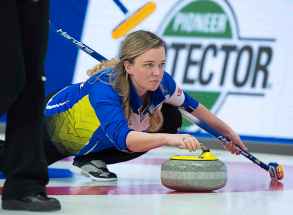Like father, like daughter Alberta sharpshooting skip Chelsea Carey a lot like her straight-shooting dad
Read this article for free:
or
Already have an account? Log in here »
To continue reading, please subscribe:
Monthly Digital Subscription
$0 for the first 4 weeks*
- Enjoy unlimited reading on winnipegfreepress.com
- Read the E-Edition, our digital replica newspaper
- Access News Break, our award-winning app
- Play interactive puzzles
*No charge for 4 weeks then price increases to the regular rate of $19.00 plus GST every four weeks. Offer available to new and qualified returning subscribers only. Cancel any time.
Monthly Digital Subscription
$4.75/week*
- Enjoy unlimited reading on winnipegfreepress.com
- Read the E-Edition, our digital replica newspaper
- Access News Break, our award-winning app
- Play interactive puzzles
*Billed as $19 plus GST every four weeks. Cancel any time.
To continue reading, please subscribe:
Add Free Press access to your Brandon Sun subscription for only an additional
$1 for the first 4 weeks*
*Your next subscription payment will increase by $1.00 and you will be charged $16.99 plus GST for four weeks. After four weeks, your payment will increase to $23.99 plus GST every four weeks.
Read unlimited articles for free today:
or
Already have an account? Log in here »
Hey there, time traveller!
This article was published 20/02/2019 (2487 days ago), so information in it may no longer be current.
SYDNEY, N.S. — Chelsea Carey has her dad’s eyes. It’s hard to miss the resemblance. She has those electric-blue eyes that seem to drink up the light of the ice, and also her dad’s all-consuming love of the game, his stubborn will to win, his unvarnished and sometimes sandpapery frankness.
In fact, Carey says, chatting after yet another Scotties round-robin win this week, the 34-year-old skip is so much Dan Carey’s daughter — and her sister Samantha, two years younger, so much like their mother — that sometimes the siblings mediate parental spats in that manner.
“I’ll go talk to my mom and explain what my dad’s thinking, and his process, and my sister goes and talks to my dad about where she’s coming from, and we solve it that way,” Carey explains, chatting in the concrete maze beneath Sydney’s Centre 200. “We’re very much alike, very similar.”
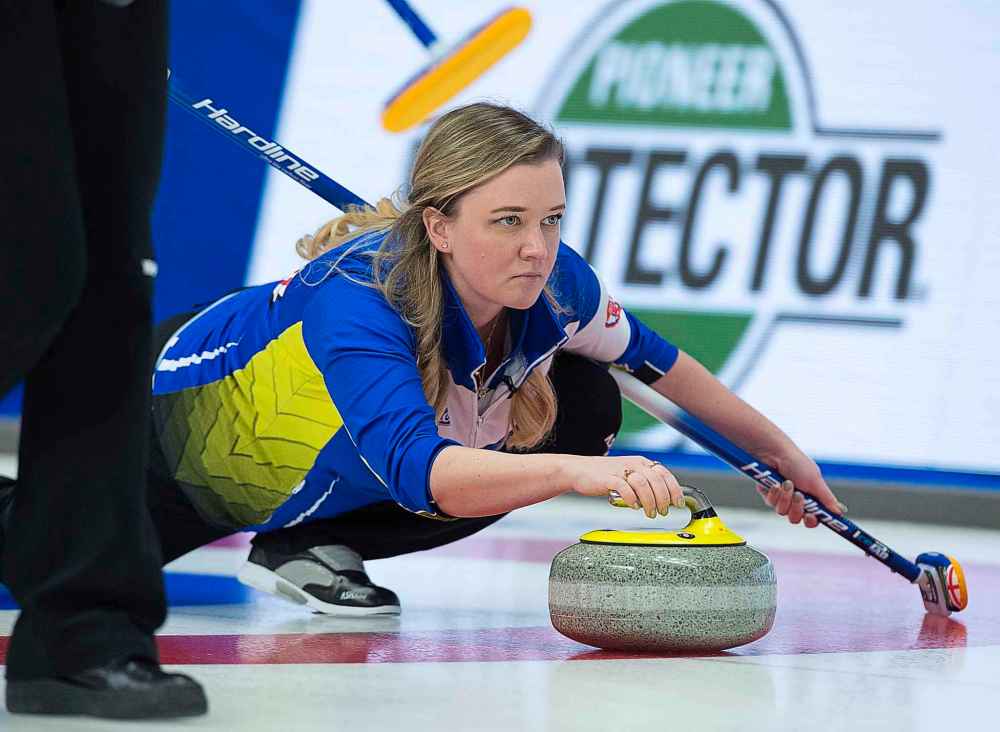
So it seems fitting that, at this moment in Chelsea’s career, she and her dad are officially reunited on the sheet. After four seasons away, Dan is back coaching his daughter, this time with her first-year Alberta champion team of third Sarah Wilkes, second Dana Ferguson and lead Rachel Brown.
This return isn’t as big a deal as it sounds. Even when Dan wasn’t on the bench, the 1992 Brier champion was never too far away from Chelsea. He’d be in the stands or, if not there, they’d be texting and doing the same things they’ve always done: dissecting each shot, wrangling over strategy.
“It’s obviously a comfort zone for me, but it doesn’t really change much for me, other than I talk to him in the game,” Chelsea says. “Other than that, I talk to him the same amount, whether he’s coaching or not. But I think he’s been a good fit, and he’s been helping us out.”
‘It’s the way I am and the way I raised her. My biggest challenge in coaching women, quite frankly, is softening things. I’m too blunt and they don’t like that’
– Dan Carey
There is something special about this bond. It’s not the only one around: there are a number of parent-scion duos in the sport, even at this Scotties. For instance, Thunder Bay icon and two-time world champion Rick Lang is here, coaching the Northern Ontario team for which his daughter, Sarah Potts, plays lead.
Still, there is something about the Carey combination that packs a certain punch. It’s partly how similar the former Manitoba champions can be, both inside the game and out; in interviews, Dan is as blunt about his daughter’s triumphs and travails as she is about herself.
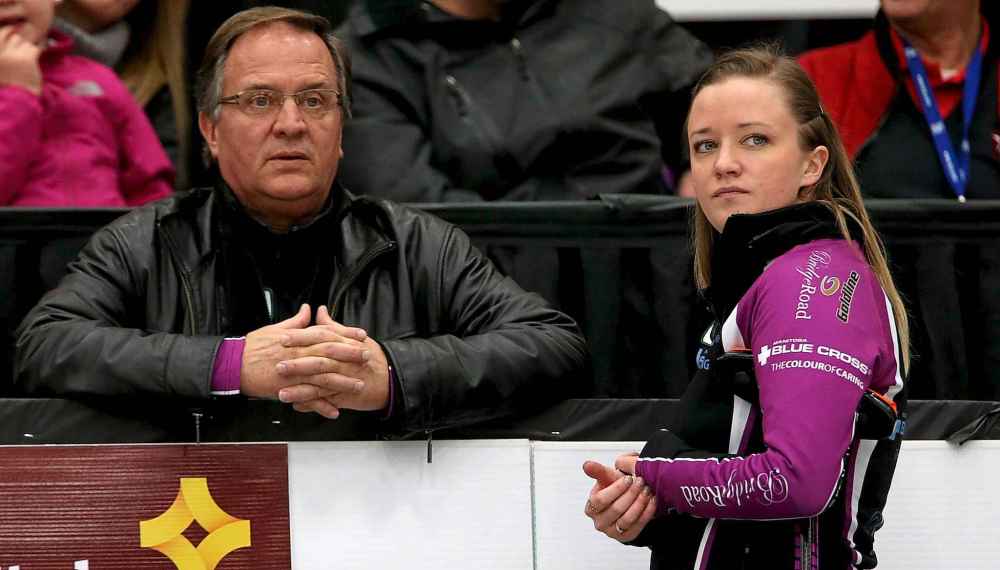
“It’s the way I am and the way I raised her,” he says. “My biggest challenge in coaching women, quite frankly, is softening things. I’m too blunt and they don’t like that. So I’ve tried to change and soften stuff up a little bit. But at the end of the day, in my mind, it is what it is. We’re all trying to get better, we’re all trying for the same thing.”
What works for their on-ice partnership is that Chelsea also prefers advice to be given to her straight.
“He’ll tell me that I’m rushing, and I’m like, ‘no I’m not,'” Chelsea says, adopting a mock-indigant tone. “But I am. From the outside you can see that stuff, and he knows me so well he can tell. I rely on him less (than I did), but it’s still good to have that checkpoint there with the mental prep kind of stuff.”
For years, she’d needed that grounding. Carey has always had a quiver full of shots, but her deadliest weapon came from the gut. In some ways, she’s the mirror image of Rachel Homan: where the Ontario champion is all cold fire, tightly controlled whenever cameras are on her, Carey is effortlessly emotive and wears her heart on her sleeve.
Television loves her for this and so do reporters. She’s one of the most quotable players in the game, in addition to being one of its most entertaining shooters. In a tense and meaningful game, such as the 2017 Olympic trial final against Homan, you can watch her live a whole life on each shot.

But that smouldering intensity is also a double-edged sword. You could see it during and after tough games early in Carey’s career. She was hard on herself when she lost; she’d stand in front of the cameras, those blue eyes shrouded in some internal storm.
She’s better at that part now. Part of that, Carey says, is the time she’s spent working with a sports psychologist, which most elite curlers have enlisted in recent years. The other part is what she learned during the four seasons her dad, who’d coached her since she was in juniors, wasn’t on the bench.
Maybe it was just time to strike out on her own. After winning a coveted Manitoba championship in 2014, Chelsea packed her bags for Alberta. She skipped a few different teams and dabbled with guidance from various coaches. Meanwhile, Dan stayed in Winnipeg, coaching Reid Carruthers.
Those years were a roller-coaster. After taking the reins of Heather Nedohin’s old team, Carey blazed through the Scotties in 2016 to capture her first Maple Leaf jacket. But she failed to hit the podium at the world championship and, just one year later, fell short of defending her Canadian title; at that Scotties, she settled for third.
The whole time, she was learning. Bit by bit, the skip says, she came to understand something she needed to know — something that, when Dan had been on the bench, hadn’t quite been brought out in the open enough for her to see.
“I think what happened was when he didn’t coach me, I realized how much he was doing for my mental state without me ever knowing it,” she says, musing. “I struggled for a while to figure out how to do it for myself, because I didn’t even realize he was doing it.

“Then all of a sudden (without him), I was like, ‘What’s going on? I’m not confident, I’m not…'” she says, about the frustrations of those first years in Alberta. “I was just different. Eventually I clued in that some of the things he was saying, because he knows me so well, he’d figured out how to get me into a good headspace.”
So without Dan around, Chelsea learned to do that for herself. It was good for her development, she thinks; now that they’re reunited on the ice, she doesn’t lean on him as heavily as she did. She has learned how to say to herself the things that help her shake off the weight of the moment.
From afar — though, again, not that far — Dan noticed the difference in his daughter. She’s matured as a player, he thinks, in all the ways she once struggled. It’s how she deals with the pressure of it all, and the disruptions of the unexpected. That was something Dan learned the hard way, too.
“It’s trying to remind her that the crowd, and you guys (media), and somebody doing something or the other… it’s all just noise,” he says. “You can’t let the noise distract you from what you’re trying to do. The mental toughness to stay focused on what’s important, and what you set out to do, is where I think she’s grown quite a bit.
“She’s realized that mistake I made when I played was the same thing she used to do,” he adds. “If you want to play in this game a long time, especially as a skip, you can’t do that.”

Dan pauses and thinks back to a lesson he absorbed from his time alongside his own iconic Manitoba skip.
“Vic Peters used to always say to me, ‘I’m going to make some shots to win and I’m going to miss some shots to lose,'” he says. “So I can’t get too upset when I miss a shot to lose. It’s all about your approach to that, and her approach has changed, and she’s realizing it’s not that big of a deal at the end of the day.”
Now, it’s all coming together for Carey, and the timing couldn’t be better. She has been sensational in Sydney, storming undefeated through a ferociously difficult round-robin pool and doing it with an 84 per cent shooting rate, making her the sharpest and most consistent shooter at her position.
Best of all, she seems to be enjoying herself. On Tuesday, when she became the first skip to clinch a championship-round berth, she offered a wry smile: “If you’re coming here from Alberta and not making the championship pool, I don’t think I’d go back,” she quipped. “I think I’d move into Sydney.”
The Curling Canada interviewer, recognizing in that moment another one of those perfectly quotable Chelsea Carey zingers, playfully lowered his microphone. That was the money quote, he told her, and all he needed; and as they parted ways, laughing, the skip turned to add a disclaimer.
“I stole that from my dad, actually,” she said. “That’s his line.”
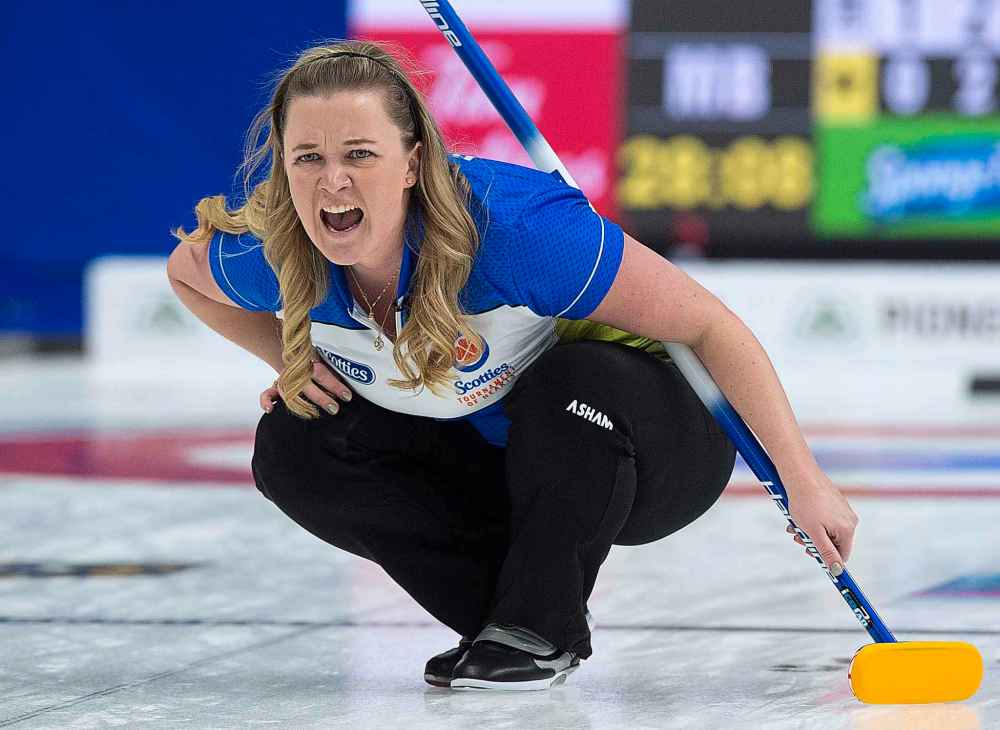
melissa.martin@freepress.mb.ca
Our newsroom depends on a growing audience of readers to power our journalism. If you are not a paid reader, please consider becoming a subscriber.
Our newsroom depends on its audience of readers to power our journalism. Thank you for your support.


